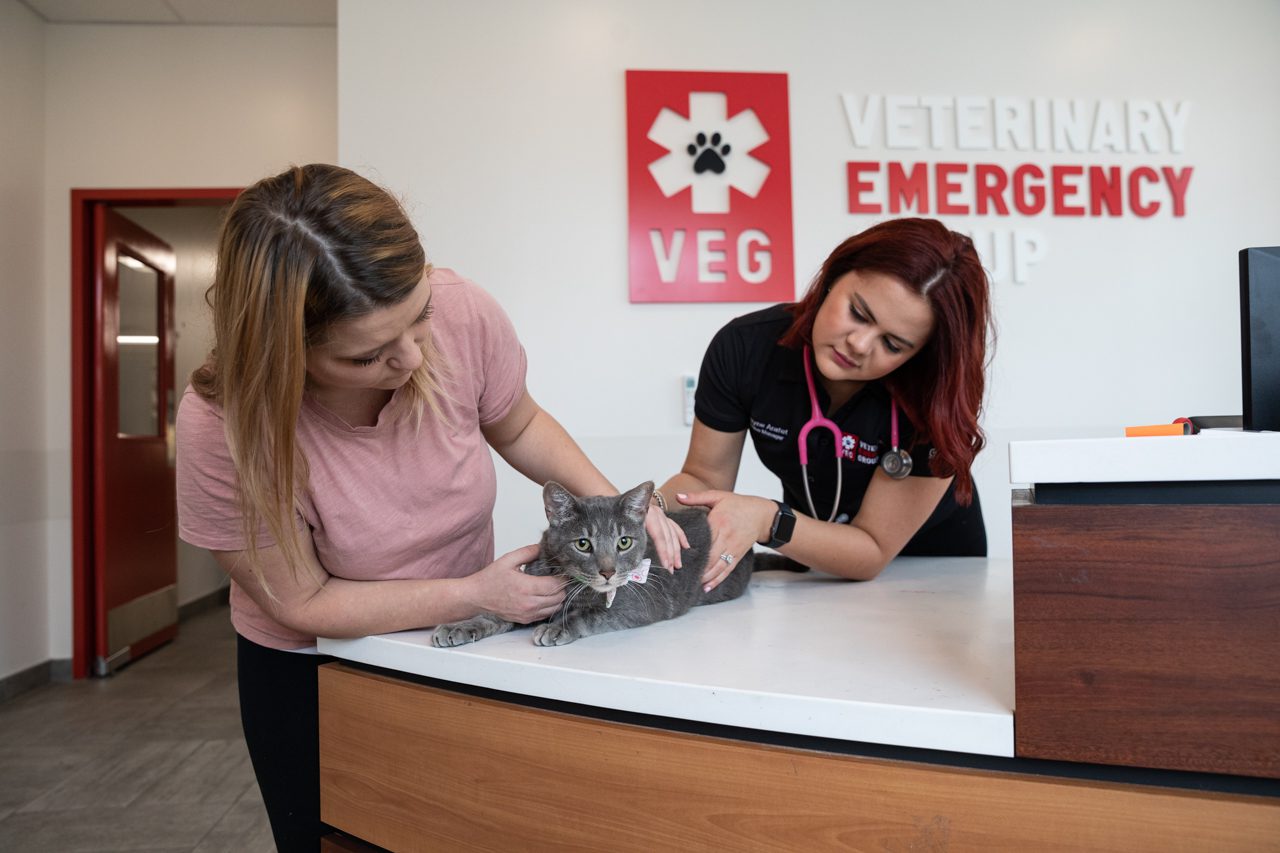
6 Reasons Why Protecting Your Cat from Feline Leukemia is Important
Dr. Mollie Powell
Call & Speak with a doctor Open 24/7, Even Holidays!
Walk in today for:
Emergencies
Point-of-Care Ultrasound
Urgent Care
X-Rays
Diagnostics + Testing
End-of-Life Care
Surgery
Treatment + Hospitalization
Have you ever heard of feline leukemia? As a cat owner, chances are good you’ve heard something about this condition before. But did you know it is possible to protect your cat from feline leukemia by having her vaccinated against it?
Protecting your cat from feline leukemia is very important. There are many benefits to having your cat vaccinated against this dangerous condition. In the article below, we’ll help you understand more about what the feline leukemia vaccination can do for your pet, and we’ll explore some of the most important reasons for protecting your pet from this disease, too.
Reasons Why You Should Protect Your Cat from this Condition
Listed below are 6 reasons why it is important to protect your cat from feline leukemia:
1. The Feline Leukemia Vaccine Works
First and foremost, the feline leukemia vacccineworks well to prevent feline leukemia virus infection in cats and protect cats from this dangerous condition. Although there is always a slight risk of a cat developing feline leukemia even after vaccination, this risk is low and is very uncommon for most pet cats. Generally, this negative result is seen in cats who are strays.
Otherwise, this injection is an excellent way to provide some protection for your feline friend. Your vet can give you more specific information about how the vaccineworks and what to expect from it with regard to your cat and its success.
2. The Feline Leukemia Vaccine is Safe
For most cats, there are no significant side effects from getting the feline leukemia vaccine. Most cats experience nothing more than a little bit of pain at the injection site for a day or two, although some cats may run a low fever following any type of injection. These very minor side effects are nothing to worry about. Less commonly, allergic reactions can occur but are usually mild and can be easily treated by your veterinarian. Symptoms of an allergic reaction can include vomiting, diarrhea, labored breathing, wheezing, hives, swollen face, weakness, or collapse.
With any vaccine in cats, the most severe complication is vaccine-associated sarcoma. This is a tumor that can develop many years later at a previous injection site from any medication, although vaccination sites are most common. This occurs in less than 1 in 1000 cats who are vaccinated in their lifetime.
If your vet believes your cat has any reason to avoid getting the feline leukemia injection, you will be told beforehand. Keep in mind, however, that in the majority of cats, this injection is safe, effective, and relatively painless to receive as well.
With any vaccine in cats, the most severe complication is vaccine-associated sarcoma. This is a tumor that can develop many years later at a previous injection site from any medication, although vaccination sites are most common. This occurs in less than 1 in 1000 cats who are vaccinated in their lifetime.
3. Feline Leukemia is Deadly
All cats who contract feline leukemia virus will eventually die from it, or from complications related to it. This infection suppresses the cat’s immune system and leaves them vulnerable to succumb to infections or cancer. There is no cure for feline leukemia, and management options only include keeping your cat comfortable and protecting her from secondary infections. A diagnosis of feline leukemia typically means that the cat will die within three years.
This is by far the most compelling reason to have your cat vaccinated against this deadly disease. You can protect your cat from contracting this illness and help her live a longer, healthier, happier life by simply getting her the vaccination against it.
4. Feline Leukemia is Painful
Unfortunately, feline leukemia can be painful and unpleasant for your cat to experience. It is not a quickly deadly disease, but one that your cat may suffer with for several years before it finally wins out. It can be upsetting and difficult to watch your cat go through this type of suffering.
To prevent your cat from having to deal with such a painful and challenging experience, you can have her vaccinated against feline leukemia. Although it is always possible that she could become sick with another condition, you’ll be able to protect her from one of the most severe.
5. Feline Leukemia is Contagious
Feline leukemia virus is extremely contagious to other cats. By vaccinating your cat against this condition, you can prevent her from potentially spreading it to any other cats she may come into contact with. Even if you keep your cat indoors all the time, it’s important to have her vaccinated. There is always a risk that she could escape the home, and would be completely unprotected against this deadly disease. Cut down on the spread of this deadly and dangerous cat disease by having your pet vaccinated against it.
6. Feline Leukemia Vaccines are Required by Some Locations
If you plan to travel with your cat and stay in a hotel, or if you plan to board your cat at any point throughout her life, she mayneed to have her feline leukemia vaccination before going to these places.
More and more destinations and boarding facilities alike are requiring feline leukemia vaccinations for cats. If you have any travel plans involving your cat, keeping her up to date on her shots can help make the process smoother.
Talk to Your Veterinarian About Feline Leukemia
As you can see, providing some protection for your cat against feline leukemia is an important part of cat ownership. Most cats respond well to the feline leukemia vaccine, so it’s a good idea to talk to your vet as soon as possible about having your cat vaccinated, too.
If you have any questions or concerns about this vaccine or about your cat’s ability to handle it, talk to your vet for more information. Your vet will let you know if your pet is a good candidate for this vaccination based on her specific medical history.
For more information about this condition, contact VEG by calling one of our locations. Our emergency vets are available every day, including weekends and holidays to provide the best care for your pet.

